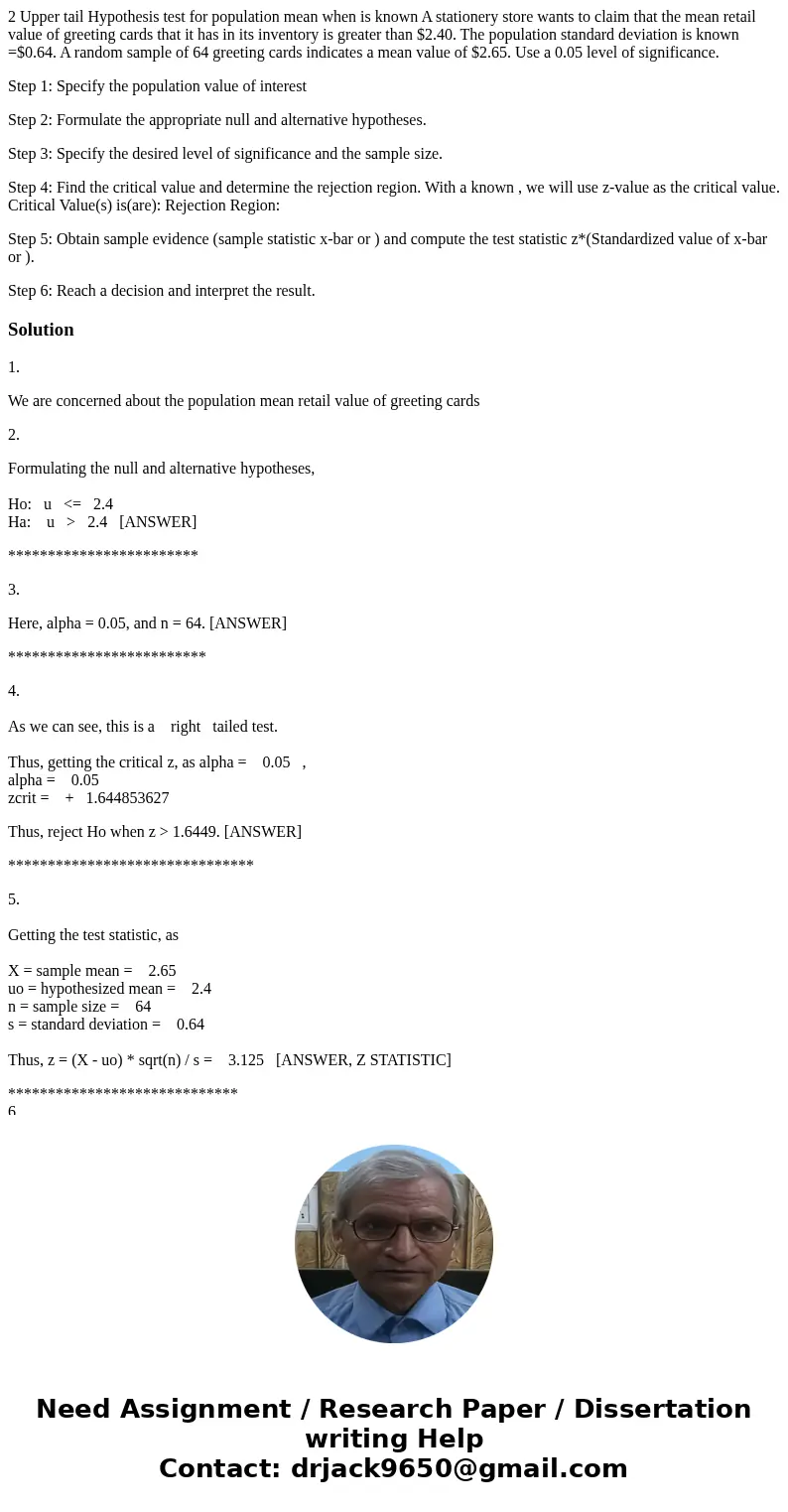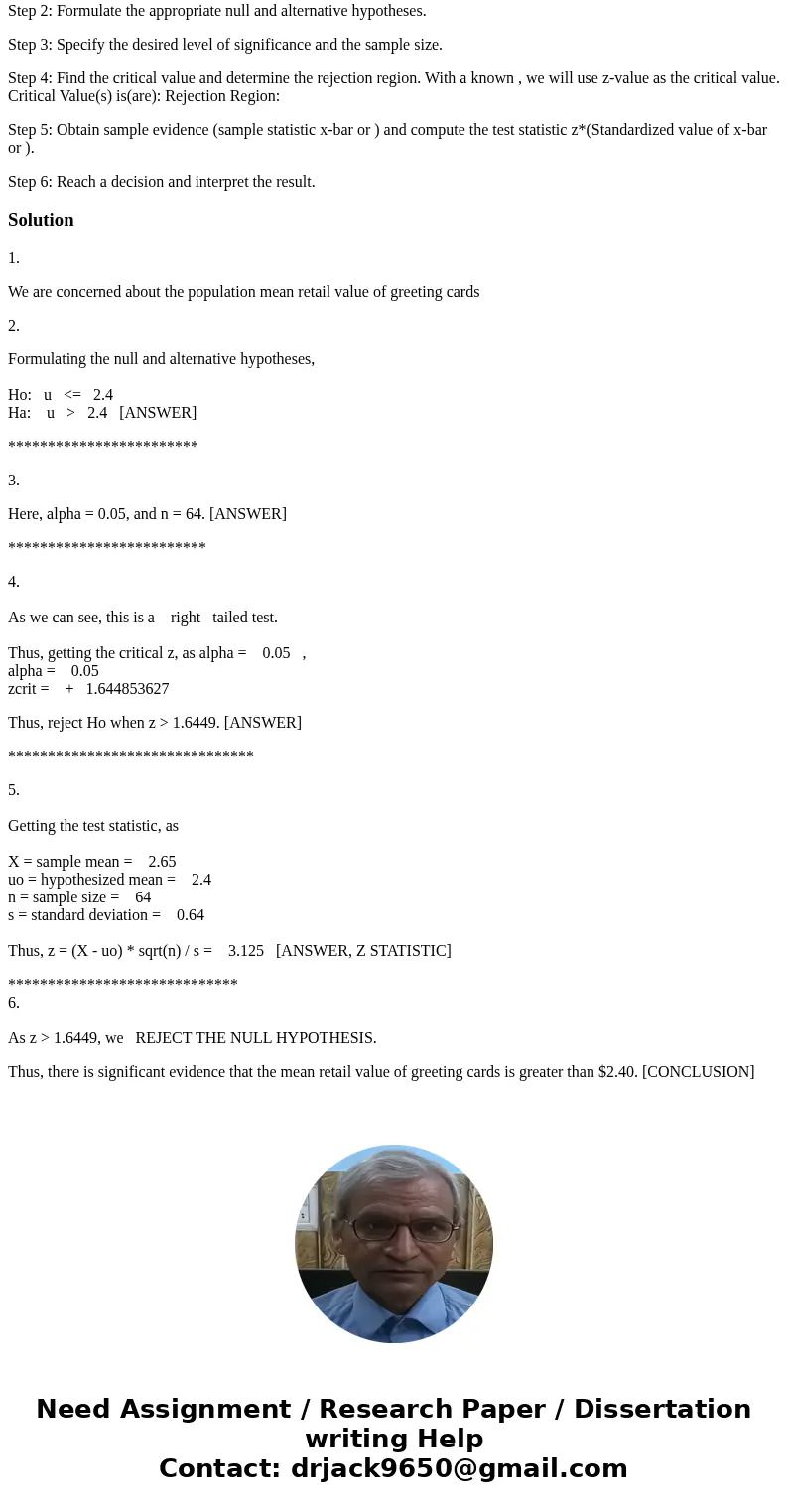2 Upper tail Hypothesis test for population mean when is kno
2 Upper tail Hypothesis test for population mean when is known A stationery store wants to claim that the mean retail value of greeting cards that it has in its inventory is greater than $2.40. The population standard deviation is known =$0.64. A random sample of 64 greeting cards indicates a mean value of $2.65. Use a 0.05 level of significance.
Step 1: Specify the population value of interest
Step 2: Formulate the appropriate null and alternative hypotheses.
Step 3: Specify the desired level of significance and the sample size.
Step 4: Find the critical value and determine the rejection region. With a known , we will use z-value as the critical value. Critical Value(s) is(are): Rejection Region:
Step 5: Obtain sample evidence (sample statistic x-bar or ) and compute the test statistic z*(Standardized value of x-bar or ).
Step 6: Reach a decision and interpret the result.
Solution
1.
We are concerned about the population mean retail value of greeting cards
2.
Formulating the null and alternative hypotheses,
Ho: u <= 2.4
Ha: u > 2.4 [ANSWER]
************************
3.
Here, alpha = 0.05, and n = 64. [ANSWER]
*************************
4.
As we can see, this is a right tailed test.
Thus, getting the critical z, as alpha = 0.05 ,
alpha = 0.05
zcrit = + 1.644853627
Thus, reject Ho when z > 1.6449. [ANSWER]
*******************************
5.
Getting the test statistic, as
X = sample mean = 2.65
uo = hypothesized mean = 2.4
n = sample size = 64
s = standard deviation = 0.64
Thus, z = (X - uo) * sqrt(n) / s = 3.125 [ANSWER, Z STATISTIC]
*****************************
6.
As z > 1.6449, we REJECT THE NULL HYPOTHESIS.
Thus, there is significant evidence that the mean retail value of greeting cards is greater than $2.40. [CONCLUSION]


 Homework Sourse
Homework Sourse